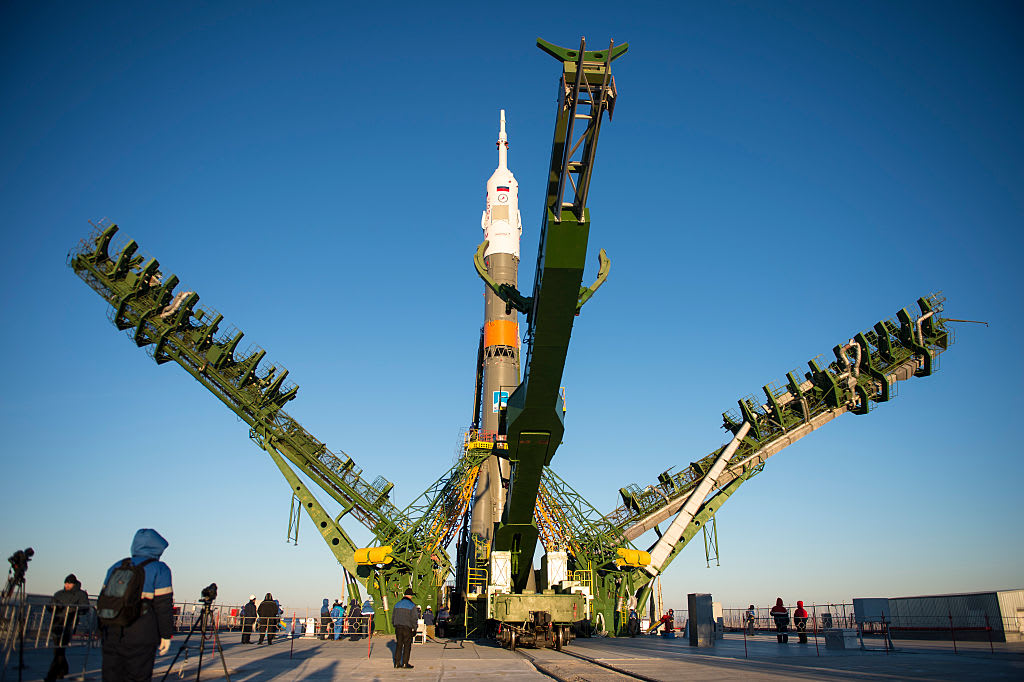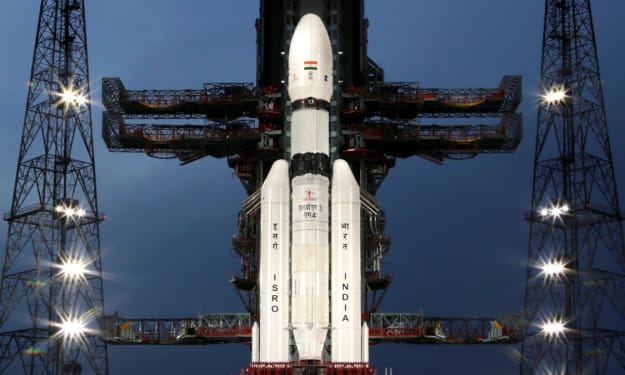
In a recent setback echoing across the cosmos, Russia's grand ambitions in lunar exploration experienced a somber twist. The Luna-25 spacecraft, a beacon of Russia's resurgence in lunar exploration after a nearly five-decade hiatus, encountered a formidable challenge during its preparations for a soft lunar landing. This incident, a poignant reminder of the complexities of space travel, raises profound questions about the hurdles of exploring the Moon's enigmatic terrains and the indomitable spirit of human endeavor.
Embarking on a journey that carried the hopes of a nation, the Luna-25 mission faced its ordeal soon after departing from the Vostochny Cosmodrome on August 11, 2023. The spacecraft, a symbol of Russia's return to lunar exploration, encountered communication difficulties after an impulse command was issued to lower its lunar orbit. The subsequent loss of contact cast a shadow of uncertainty, ultimately leading to the heartbreaking revelation that the spacecraft had met its fate through an unfortunate collision with the lunar surface.
This setback, while undoubtedly a blow to Russia's aspirations, serves as a poignant reminder of the challenges that orbit our celestial neighbor. The intricate dance of physics, engineering, and precise timing that lunar exploration demands is a testament to the formidable feat that space missions represent. The very nature of venturing into space, with its unforgiving environment and intricate technicalities, demands nothing short of absolute precision. The Luna-25 mishap underscores the inherent risks and uncertainties that accompany such profound explorations.
In the wake of this disappointment, Yuri Borisov, the Head of Roscosmos, emerged as a beacon of resolve and determination. Rather than allowing adversity to deter Russia's space ambitions, Borisov pledged an unyielding commitment to continuing their lunar program. Acknowledging the lessons of history, Borisov emphasized the dangers of prolonged interruptions in lunar exploration. He accentuated the importance of gleaning wisdom from past experiences and channeling it into the improvement of future endeavors. A dedicated commission has been set up to meticulously dissect the circumstances leading to Luna-25's unfortunate outcome.
While the shadows of this setback linger, Roscosmos refuses to allow the dream of lunar exploration to wane. Their vision stretches far beyond the lunar dust that Luna-25 touched. Luna-26, Luna-27, and Luna-28, poised as the subsequent steps in Russia's audacious lunar program, represent their steadfast commitment to unraveling the Moon's mysteries. These upcoming missions are not only a testament to Russia's resilience but a tribute to humanity's insatiable curiosity.
The forthcoming Luna-26 mission, known colloquially as Luna-Resurs-Orbiter, is anticipated to launch in 2027. This lunar polar orbiter carries the baton of scientific inquiry with the torch of determination. Designed to uncover and quantify natural lunar resources, Luna-26 will focus its inquisitive gaze on the lunar surface and its cosmic environment. As it roams the lunar expanse, this spacecraft will carry an ensemble of scientific instruments, with prospects of collaboration between Roscosmos, NASA, and private US space enterprises. Not merely a spectator, Luna-26 will shoulder the crucial responsibility of being a relay between Earth and Russia's lunar assets, bridging vast cosmic distances with unwavering precision.
The challenges posed by the Luna-25 setback are not an end but a bend in Russia's cosmic trajectory. They stand as testament to the audacity of human dreams and the grit to traverse the uncharted. As we gaze at the Moon and ponder its mysteries, we must remember that each stumble, each setback, is an opportunity to learn and to refine. The universe, vast and mysterious, beckons us to venture further, to explore, and to adapt. In that spirit, Russia's journey to the Moon continues, an ode to human resilience, our ability to evolve, and our ceaseless quest for the stars.
The tale of Luna-25's unfortunate end is not one of defeat but a chapter in a larger narrative of exploration and determination. As the world looks to the stars, Russia's journey is a reminder that the cosmos are a demanding mistress, and yet, the allure of discovery remains irresistible.
The quest for lunar exploration is not just about planting flags or sending probes; it's a testament to human ambition and the relentless pursuit of knowledge. The Moon, our closest celestial companion, holds secrets that could reshape our understanding of the universe. Each mission, each step towards it, is a stride towards unraveling these mysteries.
While Luna-25's mission didn't reach the intended crescendo, the courage to send it soaring across vast cosmic distances is a triumph in itself. It's a triumph of human intellect, innovation, and the collective determination of countless minds working together. The complexities of interplanetary travel, the delicate dance of spacecraft and gravity, and the intricacies of communication in the vacuum of space, all demand unwavering precision. When we look at Luna-25, we see not just a fallen spacecraft, but a testament to human progress and a promise to continue forward.
Yuri Borisov's resolve in the face of adversity encapsulates the essence of exploration. He understands that the quest for the stars is rife with challenges, but it's these challenges that ignite the fires of innovation. Luna-25's misfortune isn't a reason to halt the journey; it's a catalyst to innovate, to introspect, and to come back stronger. Borisov's commitment to learning from failures and turning them into stepping stones is a testament to the indomitable human spirit.
As we peer into the future, the promise of Luna-26 shines brightly on the horizon. Luna-Resurs-Orbiter holds the potential to rewrite our understanding of the Moon's mysteries. Its orbit around the lunar poles, coupled with its scientific instruments, could uncover secrets about our closest neighbor that have eluded us for centuries. It could pave the way for future missions, future technologies, and future generations of explorers.
The legacy of Luna-25 isn't one of a tragedy; it's a legacy of daring to venture into the unknown. It's a legacy of inspiring engineers and scientists to push the boundaries of what's possible. It's a legacy of reminding us that setbacks, no matter how disheartening, are mere milestones on the path to discovery.
The Moon, with its barren beauty and tranquil landscapes, has been an object of fascination since the dawn of humanity. Our journey to it has been marked by both triumphs and tragedies. From the triumphant Apollo missions to the heart-wrenching losses of spacecraft, the story of lunar exploration is a testament to the unpredictable nature of exploration.
In the end, the cosmos remain a realm of challenges and mysteries, where success and failure walk hand in hand. But as long as there are dreamers and explorers, as long as there are those willing to confront the unknown, the story will continue. Russia's quest for lunar exploration isn't over; it's simply taken a new turn. The setbacks, like Luna-25's unfortunate end, are not the final chapters but the prelude to a narrative that stretches beyond the stars.
About the Creator
Suganthan
Hi world! I am from Wonder of Asia Srilankan. Happy to write stories and History blog.






Comments
There are no comments for this story
Be the first to respond and start the conversation.